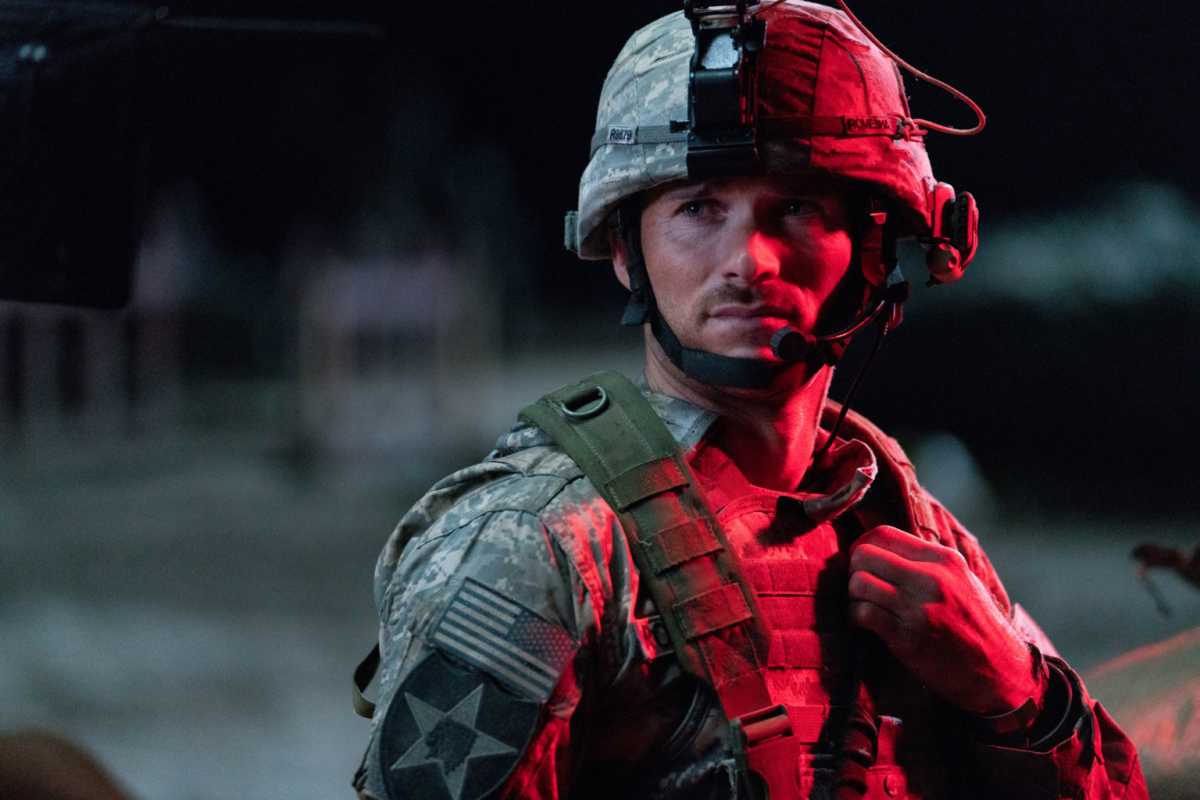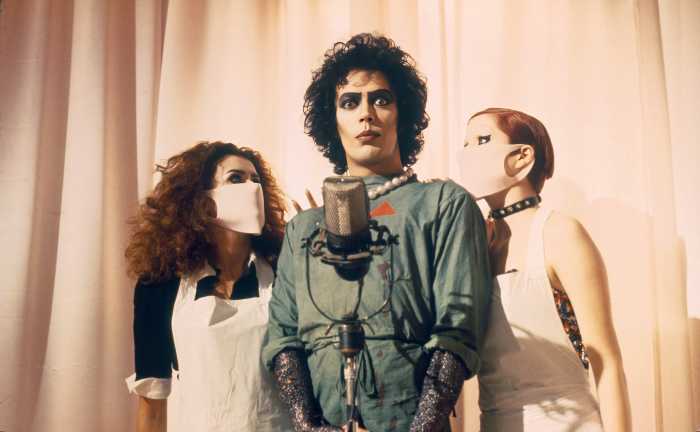BY MOLLY GIVEN
There have been plenty of war movies made in our time, each one telling a story of extraordinary circumstances, heroism and the fight to survive. With some films however, the story itself is just too unthinkable to seem real—which is the case with Rod Lurie’s latest film, ‘The Outpost.’
But this story is all real and overwhelmingly compelling.
‘The Outpost’ starring Scott Eastwood, Orlando Bloom and Caleb Landry Jones follows the true story of 53 U.S. soldiers who, while stationed in Afghanistan at an Army Combat Outpost, courageously fight off 400 Taliban fighters in a coordinated attack. This battle, later known as The Battle of Kamdesh, became known as one of the bloodiest American engagements of the Afghan War in 2009, and the outcome resulted in two Medals of Honor, fatalities and a story almost too unbelievable to conceive.
It’s that exact act of incredible heroism that drove Lurie (a vet himself) to direct and is also what drove Eastwood (playing Medal of Honor recipient Staff Sergeant Clint Romesha) to sign on with this project. Aside from an all-star cast, the film also features some of the men who were there to witness and partake in the battle themselves including Medal of Honor recipient Specialist Ty Carter, Henry Hughes and Daniel Rodriguez.
Eastwood sat down with Metro to discuss why he felt the need to sign on after hearing this story, dive into more on how it was working with the men who sacrificed their lives for our country on set and ultimately discuss what he hopes audiences take away from the film.
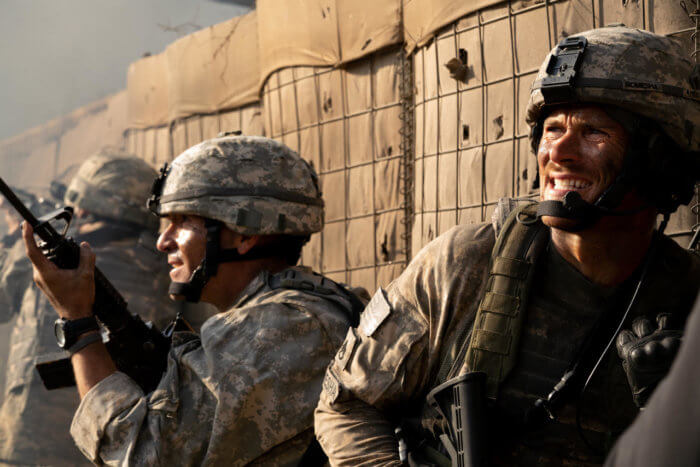
What was the initial intrigue for you to want to sign on with this project?
I’ve got to be honest, I was pretty tepid in the beginning. Rod Lurie pursued me—he wanted me to play the lead, he wanted me to play Clint Romesha, [but] I had done the war genre, and I didn’t really know if I wanted to jump back into another war movie. But Rod was very persistent. When I dug into the story and learned more about it, I found it fascinating that the war machine had overlooked this position they put these people in. I just had to tell the story, it was incredible heroism from ordinary people which I think is the most interesting thing about it. These ordinary, young people who are asked to do extraordinary things did extraordinary things in a really bad circumstance.
Once you decided that you were going to sign on, what went into getting prepared for the role? Did you get to read the book by Jake Tapper or talk to Clint himself?
I did all of the above. I started by reading by Jake Tapper’s novel and watching everything I could and reading everything I could about what happened. Also, Clint Romesha has his own book called ‘Red Platoon’ that I was able to read, so that was a wealth of knowledge. It was a very first-hand perspective of what happened. That was good and I was able to get on the phone with Clint and get to know the man [himself] as well.
How was it working with Rod Lurie as a director and also getting to work with some of the soldiers who were actually involved in the battle?
I mean, working with Rod is really great, he’s a real collaborator, sometimes you work with people who aren’t, and he really was. He promised me that we were going to collaborate, and at the same time, when it was push comes to shove, he was going to be a director. I think he struck a fine balance between being a great collaborator but also sticking to his vision and delivering the movie that he wanted to deliver. And working with some of the guys who were there—I can’t speak highly enough about these guys. Getting the opportunity to be around them, to hear from them, to learn about their stories and experiences—it’s humbling and it makes you want to tell this story in the best way and the most accurate way possible. It makes you want to go 200% and not leave anything on the table and get it right.
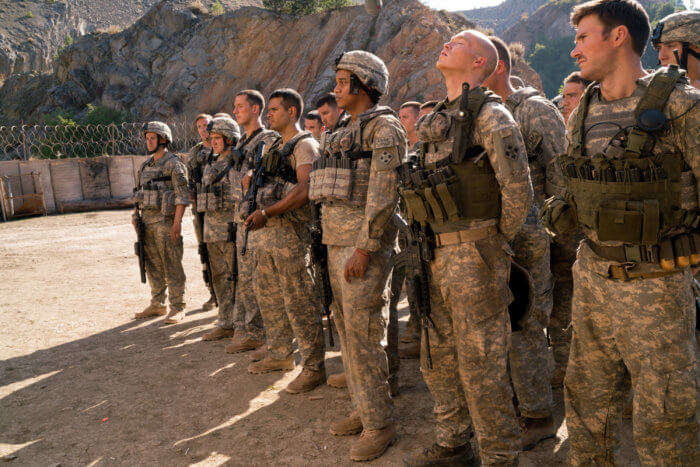
Going off what you just said and since you’ve gotten to work on other war movies before, with this one specifically, how did it feel when you did get to step into the role? Did it feel different because of that experience of working with men who were actually involved?
I think it always feels different, but there is a lot of pressure when you’re doing this with real people, and in this case, with people who have ultimately paid a big sacrifice. People have died and you want to honor them and honor their families and honor the uniform that they wore. So it’s pressure, but it’s good pressure, it makes you excel and it makes you really give it your all because there is no other choice. I think that ultimately is really rewarding.
Are there any scenes that stand out to you from filming?
There’s a lot—but it’s tough to be honest, because I broke my ankle before we started shooting. It made the process in the beginning, the first couple weeks of shooting, very tough. I was dealing with an ailment and at the same time I was trying to be the lead of the film and that was a tough set of circumstances, but I think it really helped having a really great cast and crew and director and everybody really supported everybody on set and in the process of it.
This originally was supposed to make its premiere at SXSW, but then for obvious reasons, got pushed back to 4th of July weekend. Do you think this new timing is well suited for the film?
I think it’s incredibly well suited. It’s a time in our country when there’s a lot going on, and the 4th of July, that’s the day each year we can celebrate our independence and come together as a country. That’s a day we can all get behind. I think it’s good, [and movies like these] tell stories of brother-hood and exceptional heroism—doesn’t matter what color you are, doesn’t matter what your background is or where you’re from, you wore that uniform and you served your country and I think everyone bands together in those times. It says a lot and it says a lot about what’s going on right now.
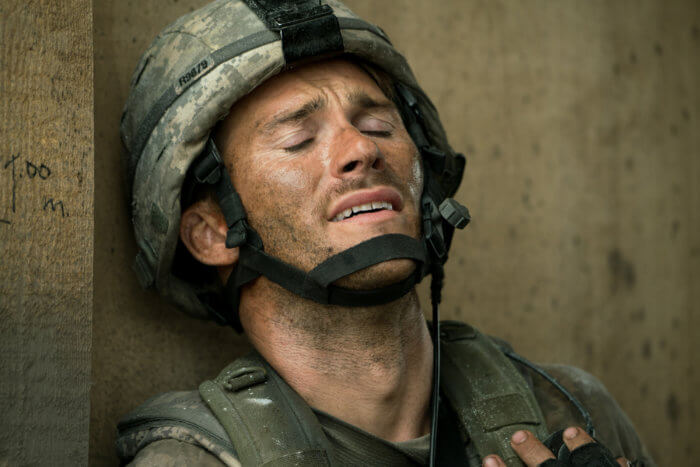
Rod Lurie had said in a previous interview that he thought this was going to be the most important film he was ever going to make. Why do you think he felt that way with this particular film?
Well, Rod tragically lost his son before shooting started, and I would imagine the pressure to tell this story and to do it right was only increased by losing a loved one during this process. I imagine for him it is the most important thing he’s ever done.
Overall, what do hope audiences take away from the film after watching?
I hope they understand what we ask of young people who are in the service and the incredible sacrifice—and in some cases the ultimate sacrifice—people defending our country and defending our freedom make. Exploring these kinds of stories and telling these stories are really important for our country to come together and to honor the people who these stories are about.
‘The Outpost’ dropped on VOD July 3.
This story first appeared on philly.metro.us.



